Dumoulin: 'The third week will be very different'
Giro d'Italia leader acknowledges challenges yet to come
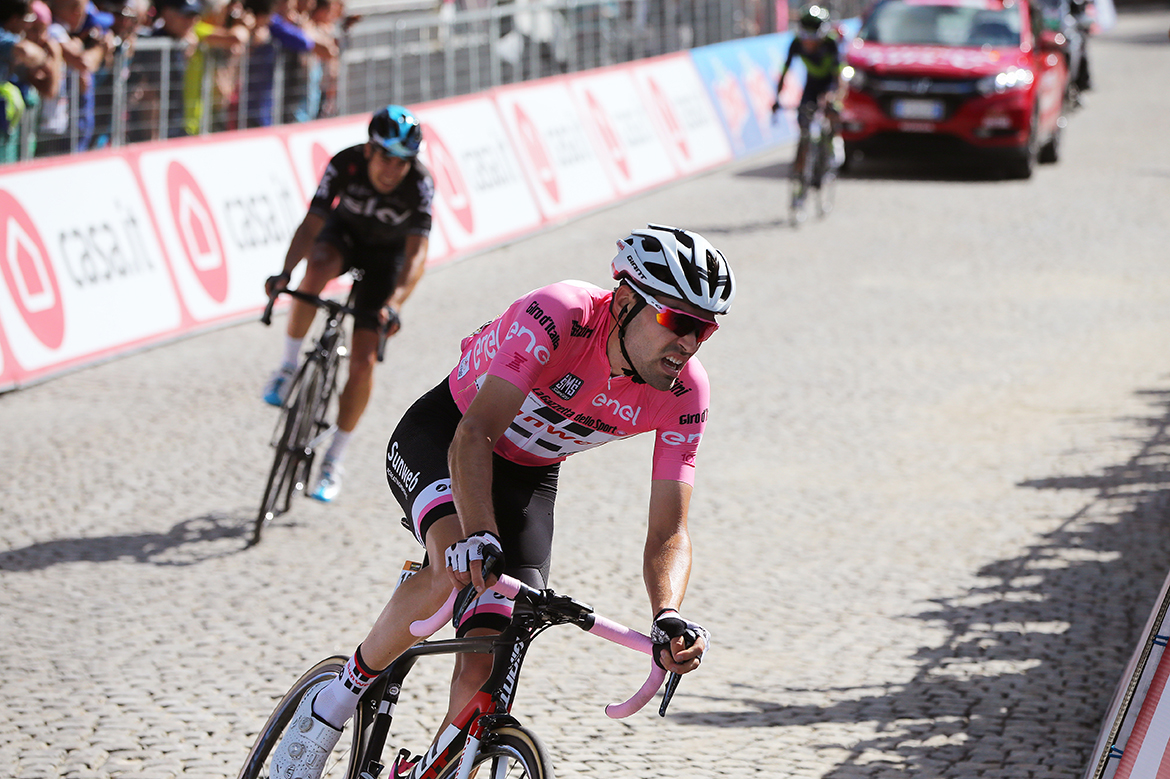
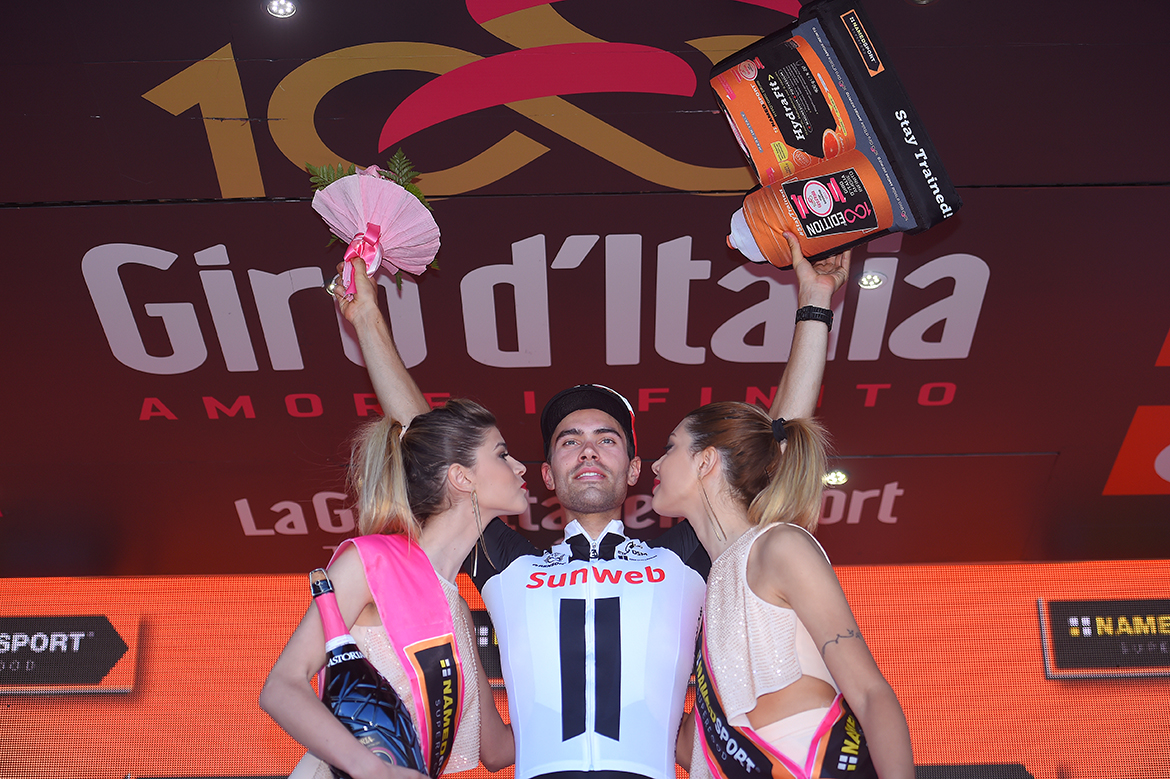
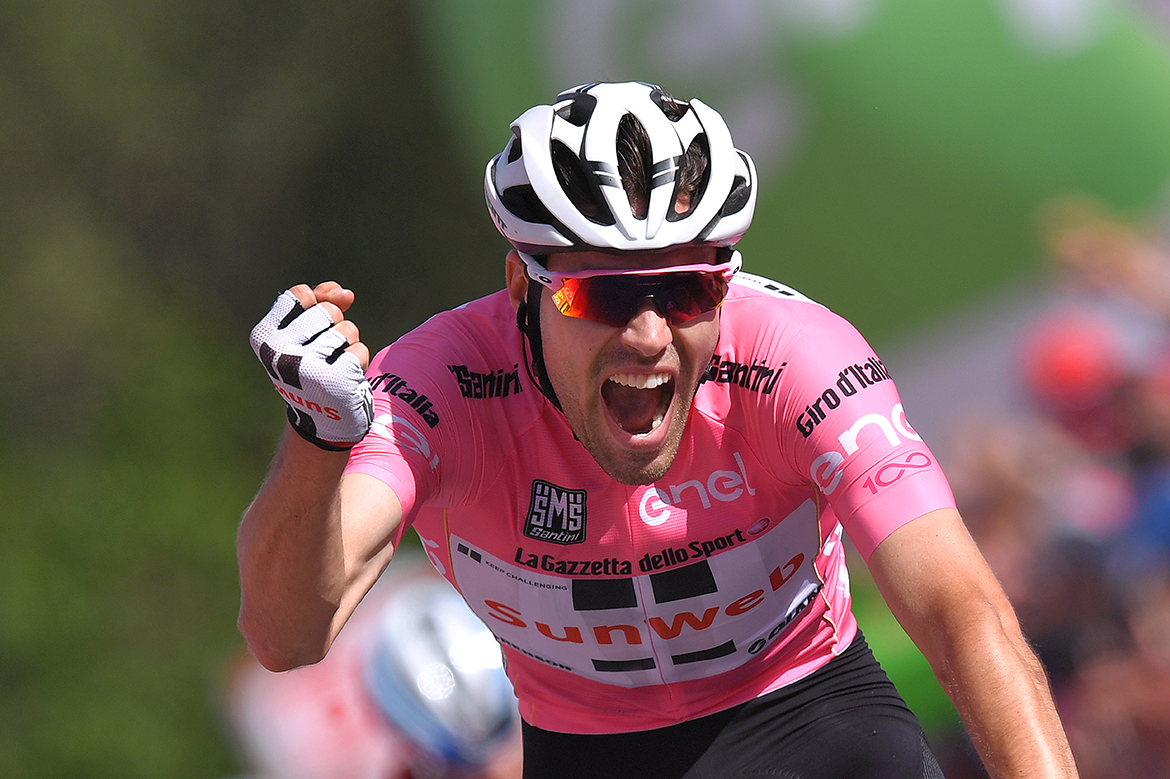
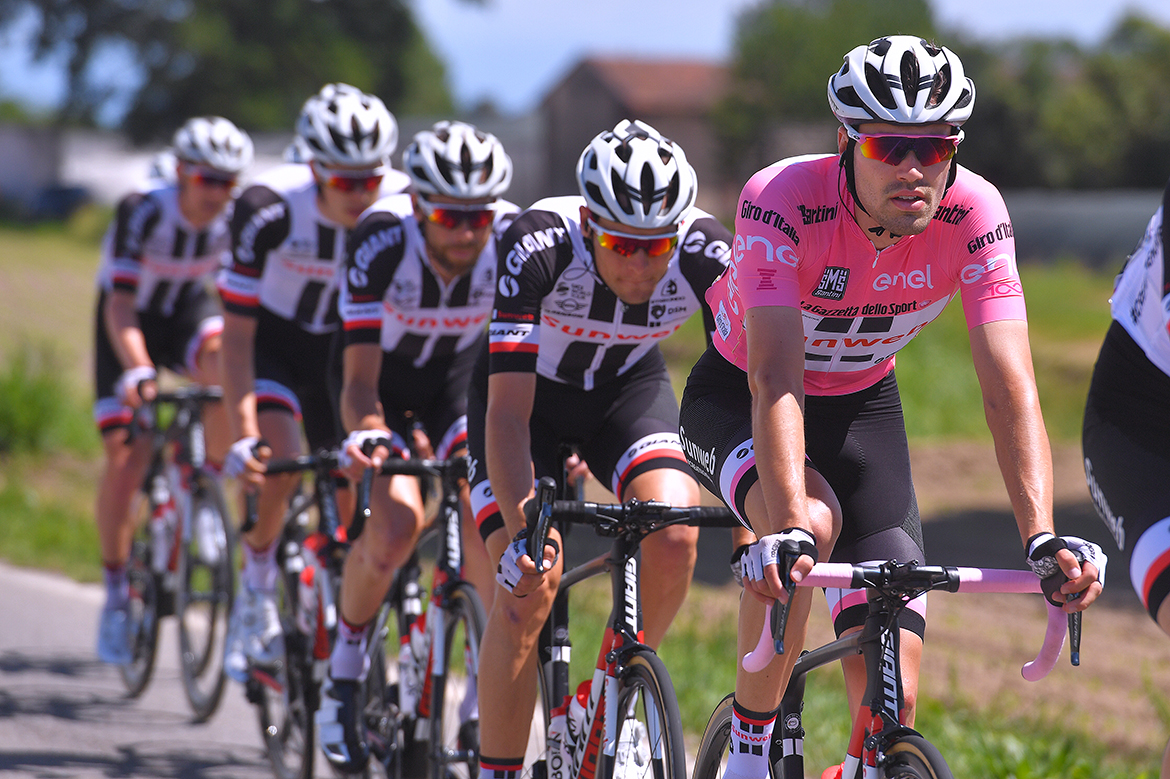
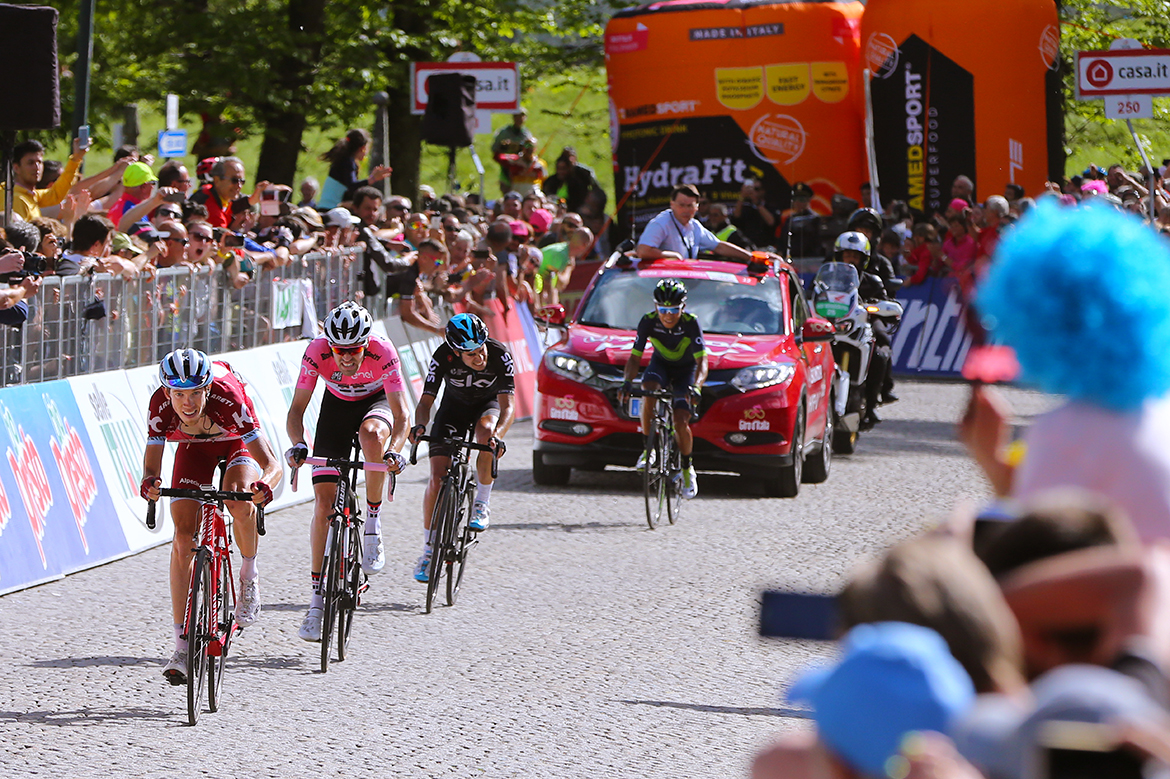
He was not bluffing. On the eve of stage 14 of the Giro d'Italia, Tom Dumoulin (Sunweb) was asked if he would be able to fend off the inevitable attacks of Nairo Quintana (Movistar) et al on the slopes of Oropa, and his answer was that of a man who quietly fancied himself to do all that and more. "It will be only the last 20 minutes that are full gas," Dumoulin told reporters in Tortona. "That's normally what suits me very well."
24 hours later, Dumoulin soft-pedaled between the rows of tables in the cramped press room at the rear of the striking Santuario di Oropa, and sat down for his press conference as the winner of the stage and an increasingly secure holder of the maglia rosa. After dominating the Montefalco time trial in midweek, Dumoulin's margins are striking. He is now 2:47 clear of the second-placed Quintana, 3:25 ahead of Thibaut Pinot (FDJ) and 3:40 up on Vincenzo Nibali (Bahrain-Merida).
"Like I said before hand, this is a stage normally that really suits me: easy all day and then full gas on the last climb, which is something I can do very well," Dumoulin said. "It will be very different in the third week. Yes, it's really nice to have a time trial victory. Yes, it's really nice to have a win in Oropa now. But the third week will be very different."
It was, by any measure, a startling performance. Dumoulin had conjured up something roughly similar to overhaul Chris Froome at Cumbre del Sol on the 2015 Vuelta a España, but the context of his calm disposal Quintana here is very different. As Katusha Alpecin directeur sportif Dimitri Konyshev put it to Cyclingnews afterwards, "Dumoulin is the padrone of the Giro. There was nothing to do against him today."
Dumoulin fastidiously stuck to his own pace When Quintana bobbed clear 3.5 kilometers from the top, but never allowed his deficit to stretch beyond 10 seconds. 1500 metres from the summit, Dumoulin was back on Quintana's wheel. Almost immediately, the maglia rosa produced an acceleration that did for Nibali, and only Quintana, Mikel Landa (Sky) and Ilnur Zakarin (Katusha-Alpecin) could follow him into the final kilometer.
After setting the pace on the final ramps, Dumoulin still somehow had the wherewithal to overhaul Zakarin when he opened the sprint from distance. Behind, Quintana sat heavily into his saddle, and he crossed the line a crestfallen fourth on the stage, 14 seconds down on Dumoulin.
"When Quintana attacked, I could not follow. It was a very strong attack," Dumoulin said. "But I knew that some other contenders were dropped, like Thibaut Pinot, so I thought I'd ride as hard as I could until the finish. I did not think I'd catch Quintana back, but I actually came closer and closer, and I caught him. When I did that, I decided to try to take as much time as possible, so I rode on the front in the final kilometer, and I still had something left in me for the final sprint.
Get The Leadout Newsletter
The latest race content, interviews, features, reviews and expert buying guides, direct to your inbox!
"When Zakarin attacked in the last kilometer, I heard on the radio that Quintana was dropped. But I was going full to the line anyway. It was not an extra push to go for victory, I was just going full to the line, I was not thinking about it."
Montagna Pantani
Even were it not Officially designated by RCS as this year's 'Montagna Pantani', the winning performance on Oropa was always liable to draw comparisons with the tragic Pirata's famous comeback after unshipping his chain 8.7 kilometres from the summit in 1999. Asked if he had seen the video on YouTube, Dumoulin Said that his knowledge of the final climb was drawn primarily from watching on television as his teammate Albert Timmer rode as part of the break on the Giro's last visit to these parts in 2014. "I remember that, and I looked at the road book so I knew it a little bit," Dumoulin said.
It was then put to Dumoulin that his time on the final 6.7 kilometres of the ascent had been at just seconds slower than Pantani's in 1999 – though it Seems That his time was, in fact, 33 seconds slower. "With Pantani ... I had the idea that we were going pretty fast. I did not know it was that fast," Dumoulin said. "That's really nice, I think."
Dumoulin's lead atop the general classification of his Giro is all the more commanding When one considers That he can expect to put time into all of his rivals in the final 30-kilometer time trial in Milan a week on Sunday. In hypothetical terms, he could lose a minute on each of the four mountain stages next week and still expect to win the Giro. After losing the 2015 Vuelta when he fell ill ahead of the penultimate stage, having repelled Fabio Aru with great assurance to that point, Dumoulin is mindful of the pitfalls of a Grand Tour's dying days.
"For sure, I learned a lesson there: A Grand Tour is never over until the last day," he said. "Of course, that was a valuable lesson. I knew that before Vuelta, too, but I just did not have the legs on the last day. I knew that could happen and looking at the third week, I know it could happen again, especially because we have not even done half of the climbing kilometers. The Giro is really just halfway. It will be a big fight in the last week. Quintana and Nibali have proven to be very strong in the third week. I still have to prove that."

Barry Ryan was Head of Features at Cyclingnews. He has covered professional cycling since 2010, reporting from the Tour de France, Giro d’Italia and events from Argentina to Japan. His writing has appeared in The Independent, Procycling and Cycling Plus. He is the author of The Ascent: Sean Kelly, Stephen Roche and the Rise of Irish Cycling’s Golden Generation, published by Gill Books.